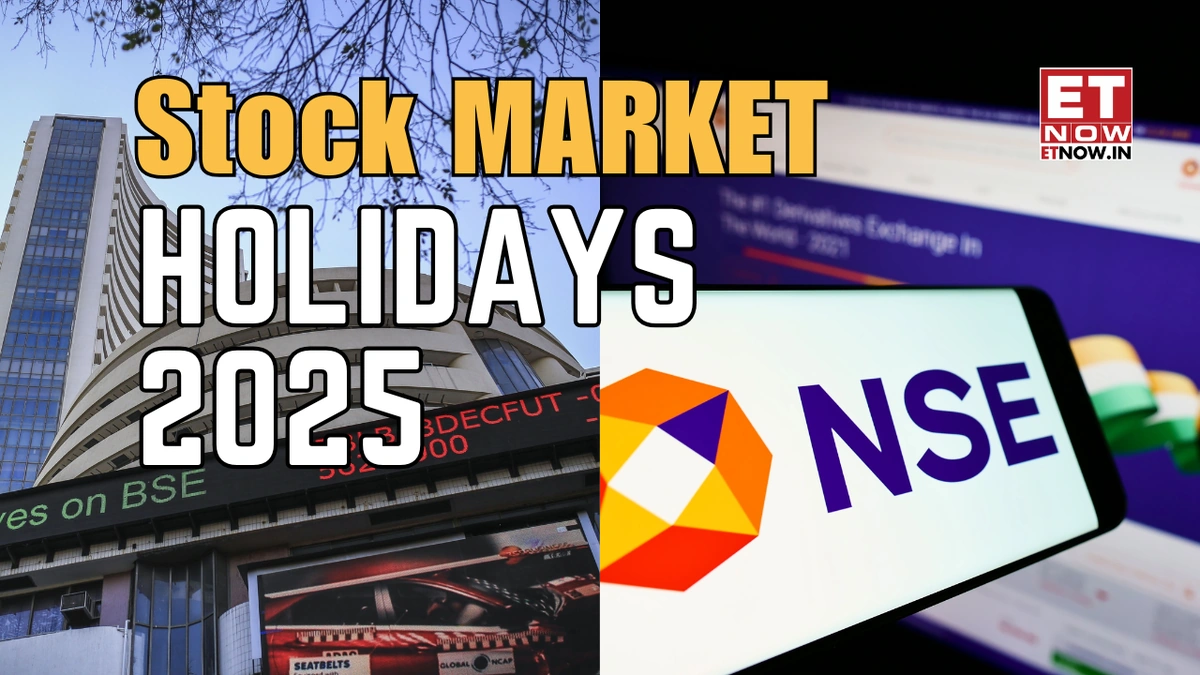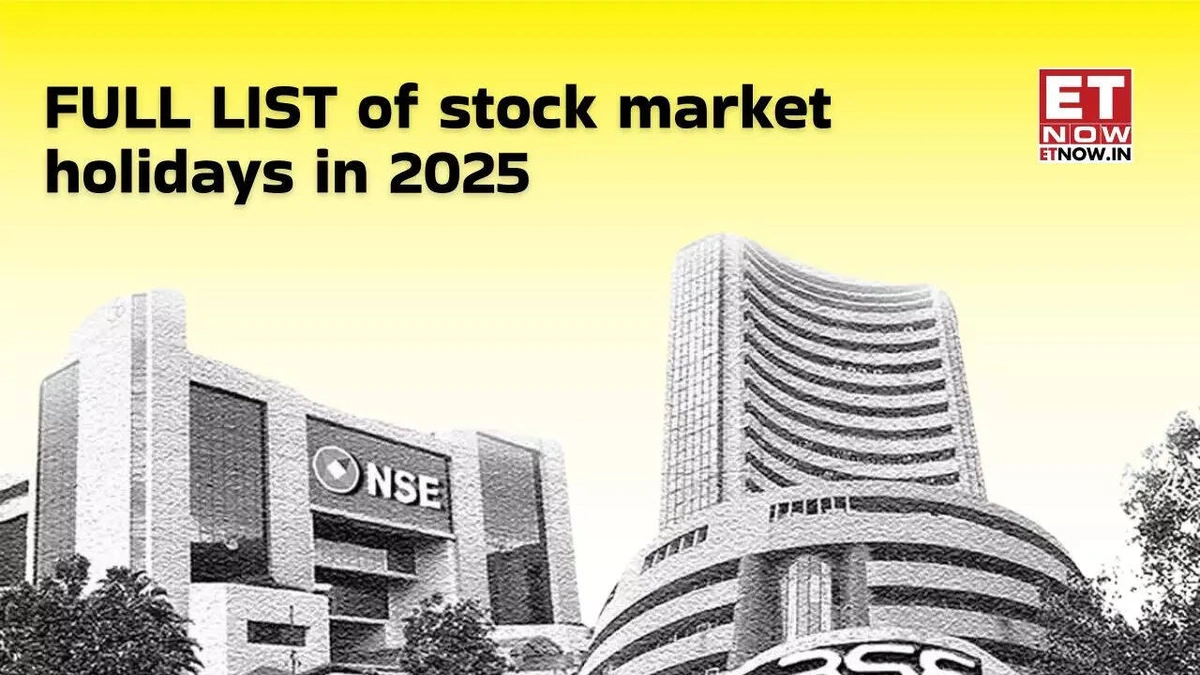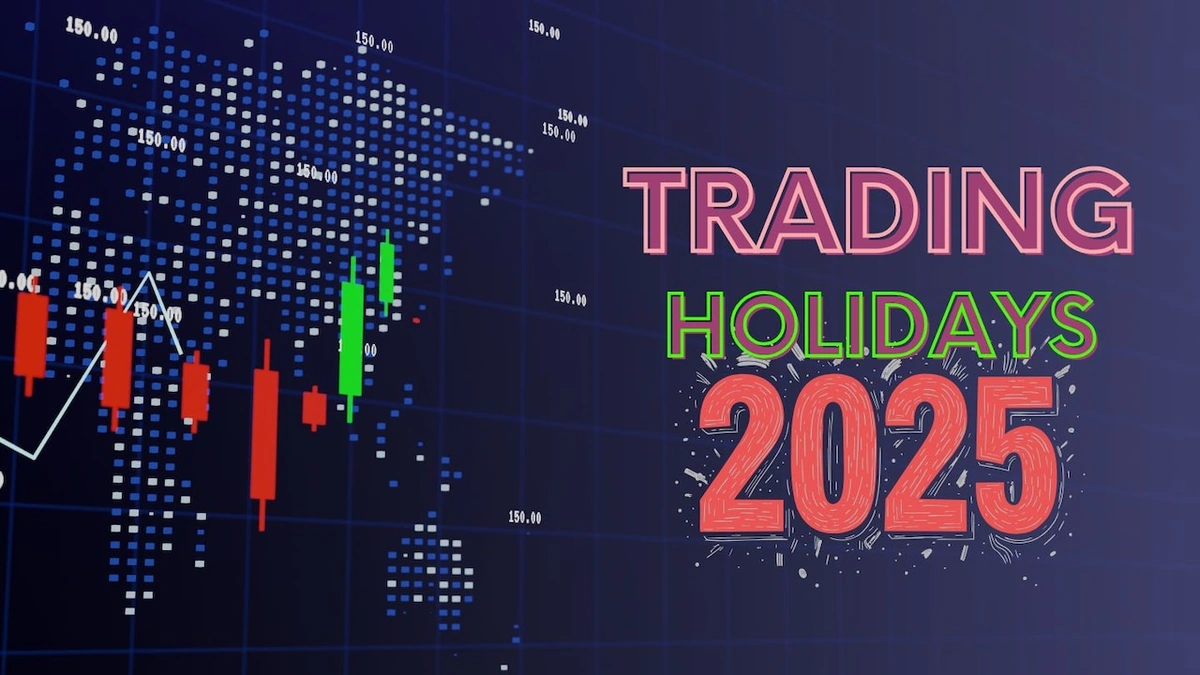Stock Market Holidays 2025 | Why Your Best Trades Might Happen When the Market is Closed
Let’s have a real chat over a virtual coffee. When you first see the list of Stock market holidays 2025 , what’s your gut reaction? A little sigh? A flicker of annoyance that the adrenaline pump of the opening bell will be silent? I get it. We’re wired for action. A day without charts can feel like a day wasted.
Thank you for reading this post, don't forget to subscribe!But here’s a thought I want you to chew on: what if these market ‘off-days’ are a secret weapon? What if the smartest investors in the room don’t just see a holiday, but an opportunity? A strategic pause. A day to sharpen the axe before the forest of trading reopens.
I’ve seen it time and again. Traders who burn out, chasing every tick. And traders who use these breaks to recalibrate, study, and plan. Guess who usually comes out on top in the long run?
So, this isn’t just another boring list of dates. Think of this as a strategic guide to using market downtime to your advantage. Because sometimes, the most profitable move you can make is taking a step back.
First, The Basics | Your 2025 Market ‘Pause’ Buttons

Alright, let’s get the logistics out of the way. You need to know when you can’t trade so you can plan everything else. Here’s the list of confirmed and tentative Trading holidays India 2025 for the NSE and BSE. Keep this handy, screenshot it, do what you need to do.
(Note: This list is based on the official circulars, but holidays like Eid are subject to change based on the lunar calendar. Always double-check with the NSE or BSE website closer to the date.)
- Republic Day: January 26 (Sunday – market is closed anyway)
- Mahashivratri: February 26 (Wednesday)
- Holi: March 14 (Friday)
- Good Friday: April 18 (Friday)
- Maharashtra Day: May 1 (Thursday)
- Id-Ul-Fitr (Ramzan ID): Date to be confirmed (likely March 31, Monday)
- Bakri ID: Date to be confirmed (likely June 7, Saturday – market closed)
- Independence Day: August 15 (Friday)
- Ganesh Chaturthi: August 29 (Friday)
- Mahatma Gandhi Jayanti: October 2 (Thursday)
- Dussehra: October 3 (Friday)
- Diwali (Laxmi Pujan): October 21 (Tuesday)
- Diwali (Balipratipada): October 22 (Wednesday)
- Gurunanak Jayanti: November 5 (Wednesday)
- Christmas: December 25 (Thursday)
Now that we have the ‘what’, let’s dive into the far more interesting ‘why’ and ‘how’.
Beyond the Calendar | Why These Holidays Actually Matter (More Than You Think)

A holiday isn’t just a blank spot on the trading calendar. It’s an active variable that influences the market before it closes and after it opens. Understanding these dynamics separates the amateurs from the pros.
Here’s the thing: the market is a psychological beast. And these breaks are a huge part of its rhythm.
1. The Global News Lag: This is the big one. The Indian market might be closed for Holi, but Wall Street is still humming. A major policy change from the US Fed, a tech giant’s earnings report, or a geopolitical flare-up can happen while we’re away. This creates an information gap. The result? A potential ‘gap up’ or ‘gap down’ opening when our market resumes. A long weekend, say from Friday to Monday, increases this risk (or opportunity). Smart traders lighten their overnight positions or hedge them before a long break to manage this uncertainty.
2. The Liquidity Squeeze: Have you ever noticed how the market can feel a bit… sluggish… the day before a long holiday weekend? That’s not your imagination. Big institutional players and cautious traders often reduce their exposure, leading to thinner trading volumes. In a low-liquidity environment, even smaller orders can cause bigger price swings. It’s a tricky time to trade, and it’s why many experienced traders just sit on their hands.
3. The Mental Reset Button: Let’s be honest, non-stop trading is exhausting. It leads to decision fatigue and emotional mistakes. A planned market holiday forces you to take a break. It’s a system-mandated psychological reset. It’s your chance to disconnect, stop watching every price tick, and come back with a clearer, more objective perspective. Don’t underestimate the power of this.
How to Turn a ‘No-Trading Day’ into a ‘High-Growth Day’

Okay, so the market is closed. You can’t place a trade. What do you do? Binge-watch a series? Sure. But what if you dedicated just a few hours to making yourself a better investor? Here’s a practical action plan.
- Conduct a Portfolio ‘Health Check’: This isn’t just about looking at your P&L. This is a deep dive. Pick one or two stocks from your portfolio. Why did you buy them? Is that reason still valid? Go read their latest quarterly earnings report and listen to the management commentary. Has anything changed in their industry? A holiday gives you the quiet, uninterrupted time to do this foundational work that’s impossible during market hours.
- Become a Student Again: There’s always something new to learn. Maybe you’ve heard about a company but never really understood its business model; now’s the time to study a firm like Tata Capital . Or perhaps you want to explore different asset classes to diversify; you could spend an hour understanding the tech behind something like Solana . Use the day to expand your circle of competence.
- Backtest Your Strategy, Not Your Emotions: Have a trading idea you’ve been wanting to try? A holiday is the perfect time to backtest it. Look at historical charts and data without the emotional pressure of live money. See how your strategy would have performed. This is the financial equivalent of a sports team reviewing game tapes. It’s where you find your edge.
Treating these days as “study days” is one of the biggest leaps you can make in your trading journey. The upcoming stock market holidays are your scheduled opportunities for growth.
Frequently Asked Questions (The Stuff Everyone Wonders About)
Is the stock market open on Saturday 2025?
Typically, no. The Indian stock market (NSE & BSE) is closed on Saturdays and Sundays. However, the exchanges sometimes schedule special live trading sessions on a Saturday, usually to test new software or disaster recovery systems. These are announced well in advance.
What’s the real difference between a trading holiday and a clearing holiday?
It’s a great question. On a trading holiday , you cannot buy or sell stocks at all. The market is completely shut. On a clearing holiday, you can trade, but the settlement of your trades (where money and shares are actually exchanged) is delayed.
For instance, if you sell shares on a day that’s followed by a clearing holiday, the money might take an extra day (T+2 instead of T+1) to hit your account. It’s a backend distinction, but important for cash flow planning.
My SIP is due on a market holiday. What happens?
Don’t worry. Your Asset Management Company (AMC) has this covered. If your SIP date falls on a non-business day (a holiday or a weekend), the transaction is usually processed on the very next business day. You won’t miss your investment.
Where can I get the 100% official BSE holiday list 2025?
The absolute best sources are the official exchange websites. They release a circular every year with the definitive list. For the final word, always check the websites of the National Stock Exchange (NSE) and the BSE Ltd. Bookmark them.
What happens to my open Futures & Options (F&O) positions during a holiday?
Your open F&O positions remain active. They are simply carried forward to the next trading day. The main thing to be aware of is the time decay for options (theta decay), which continues even on holidays. Also, as mentioned, be mindful of the risk of a gap opening due to overnight global news.
The list of share market holidays 2025 is more than a schedule. It’s a rhythm. It’s a built-in mechanism for rest, review, and research. The market gives you trading days to execute your plan and holidays to build a better one.
The choice is yours. You can see them as an inconvenience or as an integral part of your strategy. I know which one the smart money chooses. Use these pauses wisely; they might just be the most productive days of your financial year.













